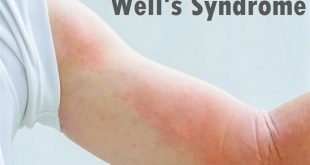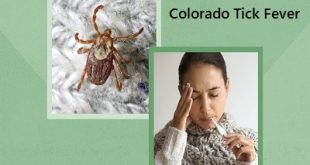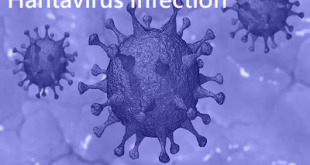Overview – West Nile Virus
West Nile Virus (WNV) is an infectious disease that first appeared in the United States in 1999. Infected mosquitoes spread the virus that causes it. People who get WNV usually have no symptoms or mild symptoms. The symptoms include fever, headache, body aches, skin rash, and swollen lymph glands. They can last a few days to several weeks and usually go away on their own.
If West Nile virus enters the brain, however, it can be life-threatening. It may cause inflammation of the brain, called encephalitis, or inflammation of the tissue that surrounds the brain and spinal cord, called meningitis. A physical exam, medical history, and laboratory tests can diagnose it.
What causes the West Nile virus?
West Nile virus is most often spread by mosquitoes. Mosquitoes become infected by biting birds that carry the virus. People can get the West Nile virus when an infected mosquito bites them. This happens most often in the warm-weather months of spring, summer, and early fall. You cannot get West Nile virus from another person or from your pet.
In a small number of cases, people have gotten the virus through blood transfusions and organ transplants. However, the risk of getting the virus in these ways is very low.
A few cases have also been reported of the virus being passed from a pregnant or breastfeeding woman to her baby. These cases are extremely rare.
Who is at risk for infection with West Nile virus?
You may be at higher risk for infection if you:
- Live where the West Nile virus has been found in humans, birds, horses, or mosquitoes.
- Spend lots of time outdoors during the warmer months.
- Don’t protect your skin with an insect repellent that contains DEET.
- However, even in areas where the virus has been reported, it’s very unlikely that a person will get sick from a mosquito bite.
If you are infected with the West Nile virus, you may have a higher risk of developing severe illness if you:
- Are you over 60 years of age?
- Have certain medical conditions, such as cancer, diabetes, hypertension, or kidney disease.
- Less than 1% of the people who do get infected with the West Nile virus develop severe symptoms or complications. Almost all of those people fully recover. Of the small number of people who do get severely ill from the West Nile virus, about 10% will die.
Symptoms
No symptoms in most people. Most people (8 out of 10) infected do not develop any symptoms.
Febrile illness (fever) in some people. About 1 in 5 people who are infected develop a fever with other symptoms such as headache, body aches, joint pains, vomiting, diarrhea, or rash. Most people with this type of West Nile virus disease recover completely, but fatigue and weakness can last for weeks or months.
Serious symptoms in a few people. About 1 in 150 people who are infected develop a severe illness affecting the central nervous system such as encephalitis (inflammation of the brain) or meningitis (inflammation of the membranes that surround the brain and spinal cord).
- Symptoms of severe illness include high fever, headache, neck stiffness, stupor, disorientation, coma, tremors, convulsions, muscle weakness, vision loss, numbness, and paralysis.
- Severe illness can occur in people of any age; however, people over 60 years of age are at greater risk. People with certain medical conditions, such as cancer, diabetes, hypertension, kidney disease, and people who have received organ transplants, are also at greater risk.
- Recovery from severe illness might take several weeks or months. Some effects on the central nervous system might be permanent.
- About 1 out of 10 people who develop severe illness affecting the central nervous system die.
Complications
The West Nile virus is a neurotropic virus, meaning that it preferentially attacks the nervous system. In the vast majority of cases, the body’s immune defenses can control and eventually neutralize the virus on their own.
However, the same may not hold true for people whose immune systems are compromised. This places certain groups—such as the elderly, organ transplant recipients, people with advanced HIV, and those undergoing cancer chemotherapy—at an increased risk of severe and potentially life-threatening complications.
The types and severity of symptoms are largely dependent on the parts of the nervous system affected. Collectively, the complications are referred to as West Nile neuroinvasive disease (WNND) and include encephalitis, meningitis, meningoencephalitides, and poliomyelitis. Overall, WNND is associated with a 9 percent risk of death. The rate is believed to be higher in the elderly.
Outbreaks
West Nile Virus (WNV) was first isolated in a woman in the West Nile district of Uganda in 1937. It was identified in birds (crows and Columbiformes) in the Nile delta region in 1953. Before 1997 WNV was not considered pathogenic for birds, but at that time in Israel, a more virulent strain caused the death of different bird species presenting signs of encephalitis and paralysis. Human infections attributable to WNV have been reported in many countries in the World for over 50 years.
Diagnosis
A needle removes fluid from the area around the spinal cord
Besides conducting a physical exam, your doctor can confirm the presence of West Nile virus or a West Nile-related illness, such as meningitis or encephalitis, by performing one of the following tests:
Laboratory tests. If you’re infected, a blood test may show a rising level of antibodies to the West Nile virus. Antibodies are immune system proteins that attack foreign substances, such as viruses.
Lumbar puncture (spinal tap). The most common way to diagnose meningitis is to analyze the cerebrospinal fluid surrounding your brain and spinal cord. A needle inserted between the lower vertebrae of your spine is used to extract a sample of fluid for laboratory analysis. The fluid sample may show an elevated white cell count – a signal that your immune system is fighting an infection — and antibodies to the West Nile virus.
Brain tests. In some cases, electroencephalography (EEG) — a procedure that measures your brain’s activity – or an MRI scan can help detect brain inflammation.
How is West Nile virus treated?
Your healthcare provider will figure out the best treatment based on:
- How old you are
- Your overall health and medical history
- How sick you are
- How well you can handle specific medications, procedures, or therapies
- How long the condition is expected to last
- Your opinion or preference
There’s no specific treatment for West Nile virus-related diseases. If a person gets the more severe form of the disease, West Nile encephalitis or meningitis, treatment may include intensive supportive therapy, such as:
- Hospitalization
- Intravenous (IV) fluids
- Breathing support (ventilator)
- Prevention of other infections (such as pneumonia or urinary tract infections)
- Nursing care
What are the complications of the West Nile virus?
Usually, the West Nile virus causes mild, flu-like symptoms. However, the virus can cause life-threatening illnesses, such as
- Encephalitis (inflammation of the brain)
- Meningitis (inflammation of the lining of the brain and spinal cord)
- Meningoencephalitis (inflammation of the brain and its surrounding membrane)
Prevention
Your best bet for preventing West Nile virus and other mosquito-borne illnesses is to avoid exposure to mosquitoes and eliminate standing water, where mosquitoes breed.
- Unclog roof gutters.
- Empty unused swimming pools or empty standing water on pool covers.
- Change water in birdbaths and pet bowls regularly.
- Remove old tires or unused containers that might hold water and serve as a breeding place for mosquitoes.
- Install or repair screens on windows and doors.
To reduce your exposure to mosquitoes:
- Avoid unnecessary outdoor activity when mosquitoes are most prevalent, such as at dawn, dusk and early evening.
- Wear long-sleeved shirts and long pants when outdoors.
- Apply mosquito repellent containing an Environmental Protection Agency-registered insect repellent to your skin and clothing. Choose the concentration based on the hours of protection you need — the higher the percentage (concentration) of the active ingredient, the longer the repellent will work. Follow the directions on the package, paying special attention to recommendations for use on children.
- When outside, cover your infant’s stroller or playpen with mosquito netting.
 Diseases Treatments Dictionary This is complete solution to read all diseases treatments Which covers Prevention, Causes, Symptoms, Medical Terms, Drugs, Prescription, Natural Remedies with cures and Treatments. Most of the common diseases were listed in names, split with categories.
Diseases Treatments Dictionary This is complete solution to read all diseases treatments Which covers Prevention, Causes, Symptoms, Medical Terms, Drugs, Prescription, Natural Remedies with cures and Treatments. Most of the common diseases were listed in names, split with categories.







